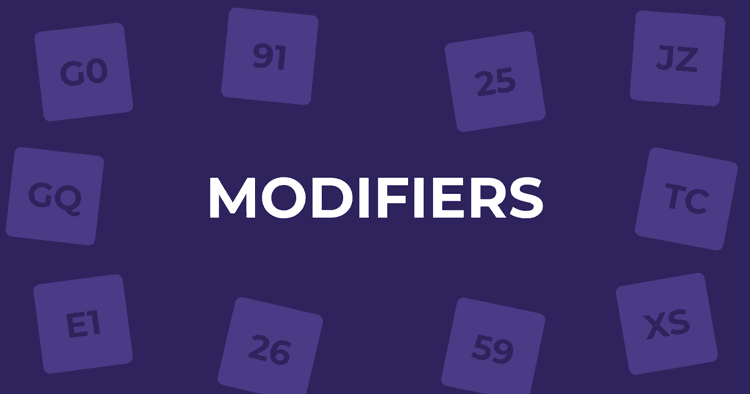JZ Modifier: The Ultimate Guide for Medicare Part B Billing Compliance

Understanding the JZ Modifier: Comprehensive Guide for Healthcare Providers
The JZ modifier, a mandated update from CMS for certain Medicare Part B drugs, specifies that a single-dose container was fully administered with zero wastage. This guide explains when and how to use the JZ modifier accurately, helping you avoid potential billing issues and stay compliant with CMS requirements.
What is the JZ Modifier and Why Is It Important?
The JZ modifier signals that no portion of a single-dose, separately payable Medicare Part B drug was discarded. This is part of CMS’s initiative to promote transparency and efficient drug usage in healthcare. Since October 2, 2023, CMS indicated they would subject claims lacking the appropriate JW or JZ modifier to increased scrutiny, which could potentially include audits.
When to Use the JZ Modifier: Key Compliance Dates
- July 1, 2023: Mandatory use of the JZ modifier began for single-dose, separately payable Medicare Part B drugs.
- October 2, 2023: CMS started enforcing compliance by scrutinizing claims that don’t include the correct modifier, possibly triggering audits if necessary
JZ Modifier vs. JW Modifier: Clear Distinctions
The JZ and JW modifiers have distinct functions:
- JW Modifier: Indicates the discarded amount of a drug from a single-dose container.
- JZ Modifier: Confirms that the entire contents were administered with zero wastage.
This differentiation supports accurate Medicare billing and helps prevent fraud by clarifying the usage of single-dose drugs
Applicability to Multi-Use Containers and Special Cases
Both the JZ and JW modifiers do not apply to multi-use containers. These are generally excluded from wastage tracking as they allow multiple administrations over time, which usually doesn’t result in immediate leftover amounts. Unless CMS provides specific guidance, assume multi-use containers are excluded from JZ and JW reporting.
Documentation and HCPCS Codes: Compliance Best Practices
Accurate documentation is crucial when using the JZ modifier to avoid errors and potential denials:
- Use HCPCS Codes: Always pair the JZ modifier with the relevant HCPCS code that describes the administered drug.
- Document Clearly: Record the full dose administered with confirmation of zero wastage in the patient’s medical record.
- Prepare for Audits: Since October 2023, CMS has been auditing claims for compliance, so detailed records will help validate the use of the JZ modifier.
Examples of Drug Categories and Specific Reporting Instructions
For separately payable drugs—such as botulinum toxins or chemotherapy agents in single-dose packaging—the JZ modifier must be included if the full vial is administered. Confirm that these drugs are in the separately payable category as identified by CMS, and document the units administered accurately. For a comprehensive list of applicable HCPCS codes and further details on modifier usage, refer to the JW Modifier and JZ Modifier Policy HCPCS Codes available on CMS.gov.
Why Did CMS Implement the JZ Modifier?
CMS introduced the JZ modifier as part of a broader initiative to improve transparency and accountability in Medicare Part B billing, particularly for drugs administered from single-dose containers. The JZ modifier, alongside the JW modifier, helps CMS accurately track drug utilization, reducing unnecessary costs and ensuring that reimbursement reflects the actual usage of drugs. This aligns with CMS’s efforts to prevent overbilling and support efficient healthcare spending.
The implementation of the JZ modifier also connects to the Infrastructure Investment and Jobs Act of 2021, which requires drug manufacturers to pay a rebate on discarded amounts above a 10% threshold for single-dose vials reimbursed under Medicare Part B. This rebate policy began in early 2023, requiring physicians and hospitals to report wastage using the JW modifier and to use the JZ modifier for zero wastage. CMS is currently exploring potential exemptions for drugs that have already incurred wastage rebates, to prevent a “double dip” in rebates under both this act and the Inflation Reduction Act.
Conclusion:
The JZ modifier is an essential component of Medicare Part B billing for single-dose drugs. By using it accurately and maintaining compliance with CMS’s requirements, healthcare providers can ensure proper reimbursements, avoid audits, and contribute to the transparency CMS seeks to achieve.
CMS introduced the JZ modifier as part of a broader effort to improve transparency and accountability in Medicare Part B billing. By requiring providers to specify when no drug wastage occurred with single-dose containers, CMS aims to more accurately track drug utilization and reduce unnecessary costs. The JZ modifier works alongside the JW modifier, which tracks discarded amounts, to provide a clear picture of drug administration practices.
Disclaimer: This guide is based on independent research and is provided for informational purposes only. While every effort has been made to ensure accuracy, healthcare providers should consult official CMS documentation and perform their own research to confirm details specific to their practice. Billing practices and regulations can vary, so it’s advisable to seek professional guidance if needed to ensure compliance with Medicare Part B requirements.
Considering a new medical billing company?
Explore our top medical billing companies marketplace.

